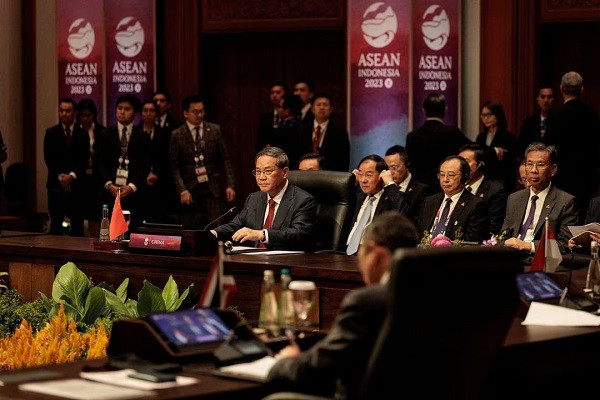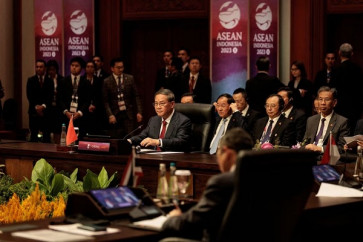Popular Reads
Top Results
Can't find what you're looking for?
View all search resultsPopular Reads
Top Results
Can't find what you're looking for?
View all search resultsTilt toward China? Not happening wholesale in ASEAN
The metadiscourse about whether ASEAN countries are pro-China fails to consider that it is a regional trading bloc focusing on "cultural and social-economic cooperation", not a military alliance.
Change text size
Gift Premium Articles
to Anyone
W
hether by design or default, there is a common narrative that all Southeast Asian countries that do not come to see the viewpoint of the United States are "pro-China". There are five reasons why this form of metadiscourse is at work. While not exhaustive, they provide a glimpse into how many people have gotten ASEAN wrong.
First and foremost, ASEAN’s founding document focused on the importance of "cultural and social-economic cooperation" when the organization was formed on Aug. 8, 1967.
However, what followed was the preoccupation of political leaders and invariably, the founding fathers, on the importance of ensuring the political stability of the region as a whole. Thus, the formative years of ASEAN between 1967 and 1992, which spanned the Cold War that began in 1950 and the post-Cold War period that ended in 1989, were guided by a need to engage in constant and deep discussions on contemporary geopolitics over two epochs.
Now that China and the US are caught in a zero-sum geopolitical and geoeconomic rivalry, any failure to chasten the behavior of China in the Taiwan Strait, the East China Sea and the South China Sea is deemed a sign of fawning on China.
While such an optic may have some validity, the opposite is equally true: ASEAN member states are in no position to speak up evenly on all three issues, especially the South China Sea. In the case of Malaysia, it has no incentive to speak too bluntly on the South China Sea, given that this is a hot-button geopolitical issue.
Yet the features in South China Sea that China and Malaysia are contesting over exist in the latter’s exclusive economic zone (EEZ) of. By this token, Malaysia sees it as a bilateral issue, not an intrinsically regional or transregional one.
Granted that China's claim rests on a historical basis that is not accepted by the 1982 United Nations Convention on the Law of the Sea (UNCLOS), Malaysia has even less motivation to speak out on this issue, since China’s claim is indeed flaky.



















